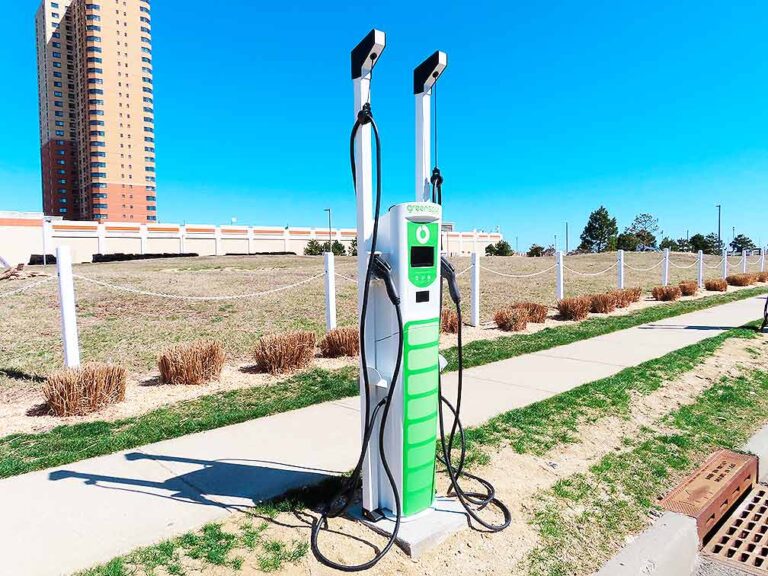WASHINGTON — Billions in federal funding have been unlocked now that all 50 states, the District of Columbia and Puerto Rico have submitted plans for electric vehicle charging stations.
“These plans are required to unlock the first round of the $5 billion of Bipartisan Infrastructure Law formula funding available over give years to help states accelerate the important work of building out the national EV charging network and making electric vehicle charging accessible to all Americans,” according to a news release from the Federal Highway Administration (FWHA).
“The on-time submission of every single plan demonstrates the widespread commitment from states to build out EV charging infrastructure to help accelerate the adoption of electric vehicles, create good jobs and combat the climate crisis.”
U.S. Transportation Secretary Pete Buttigieg said he is appreciative to each state and territory for their submissions.
The plans “will help create a national charging network where finding a charge is as easy as locating a gas station,” he said. “We will continue to work closely with all fifty states, D.C. and Puerto Rico to ensure EV chargers across the country are convenient, affordable, reliable and accessible for all Americans.”
U.S. Secretary of Energy Jennifer M. Granholm called the combined plans a “milestone in our plans to build an interconnected national EV charging network is proof that America is prepared to act on President Biden’s call to modernize the national highway system and help Americans drive electric. Our whole-of-government approach, made possible by the Bipartisan Infrastructure Law and coordinated through the Joint Office of Energy and Transportation, will boost local economies, strengthen our independence from the volatilities of fossil fuels, and ensure that electric vehicle charging deserts are a thing of the past.”
This news follows the announcement earlier this year of nearly $5 billion that will be made available to states over the next five years under the National Electric Vehicle Structure (NEVI) Formula Program, along with a Notice of Proposed Rulemaking (NPRM) on proposed minimum standards and requirements to ensure the national EV charging network is user-friendly, reliable and accessible to all Americans, the news release stated.
To access these new funds and to help ensure a convenient and equitable charging experience for all users, each state was required to submit an EV Infrastructure Deployment Plan to the Joint Office of Energy and Transportation that describes how the state intends to use its share of NEVI Formula Program funds consistent with FHWA guidance.
“President Biden’s Bipartisan Infrastructure Law provides states with both the funding and framework to build out a reliable charging network that gives people the confidence they need to buy and use electric vehicles,” said Acting Federal Highway Administrator Stephanie Pollack. “Our partnership with states is critical as we build out this national network and we work to ensure every state has a good plan in place for using NEVI Formula Program funds.”
With all state EV deployment plans now submitted, the joint office and FHWA will review the plans and continue to work with states, with the goal of approving state plans by September 30. Once each state plan is approved, state departments of transportation will be able to deploy EV charging infrastructure through the use of NEVI Formula Program funds.
“The NEVI Formula Program and state deployment plans are a foundational component of a convenient, affordable, reliable and equitable charging network,” according to the news release. “While these plans will focus on building out the backbone of a national network along highways, the $2.5 billion competitive grant program for charging and fueling infrastructure will further build out the national network by making investments in community charging.”
The Bipartisan Infrastructure Law includes $7.5 billion for EV charging, along with over $7 billion to support critical minerals supply chain necessary to support domestic EV battery manufacturing.
The Trucker News Staff produces engaging content for not only TheTrucker.com, but also The Trucker Newspaper, which has been serving the trucking industry for more than 30 years. With a focus on drivers, the Trucker News Staff aims to provide relevant, objective content pertaining to the trucking segment of the transportation industry. The Trucker News Staff is based in Little Rock, Arkansas.











